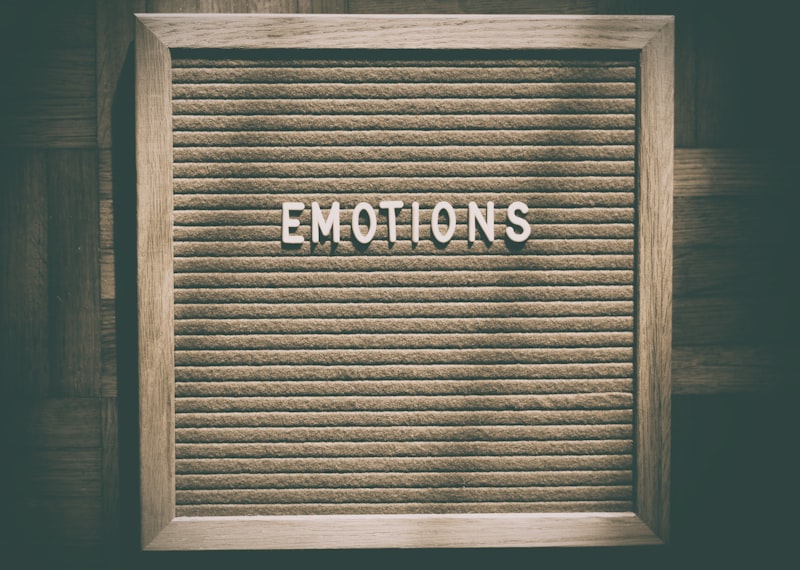- Dreams about the death of a loved one often symbolize change or transition in one’s life.
- These dreams can reflect emotions and situations in waking life, such as grief or difficult transitions.
- The specific details of the dream, such as who dies or the emotions felt, can provide deeper meanings.
- Exploring the symbolism of death dreams can offer valuable insights into emotions, thoughts, and relationships.
Dreaming about the death of a loved one can be a deeply emotional and unsettling experience. However, it is important to remember that death in dreams is often symbolic and does not necessarily represent literal death. In fact, death in dreams can have various meanings and can provide valuable insights into our emotions, thoughts, and life situations.
Understanding the Symbolism of Death in Dreams

1. Death as a representation of change or transition
One interpretation of death in dreams is that it symbolizes change or transition. Just as death marks the end of one’s life and the beginning of another journey, dreaming about death can signify an ending or transformation in your own life. It may indicate that you are ready to let go of something or someone, whether it be a relationship, a job, or a particular habit or mindset.
When you dream of death, it is important to consider the context and the feelings associated with the dream. Are you feeling scared and anxious, or are you experiencing a sense of acceptance and peace? These emotions can provide clues about how you are approaching change in your waking life. If you are feeling fearful or resistant, it may be a sign that you need to confront and overcome obstacles in order to embrace new beginnings.
2. Death dreams as a reflection of emotions and situations
Dreams about death can also reflect your emotions and situations in your waking life. For example, if you are grieving the loss of a loved one, dreaming about their death may be a way for your subconscious mind to process your feelings and emotions surrounding their passing. It can provide an opportunity for closure and healing.
Similarly, if you are going through a difficult or painful transition in your life, such as a breakup or job loss, dreaming about death may symbolize the emotional impact of these experiences. It may represent your feelings of loss, grief, or frustration as you navigate through significant changes.
3. Dream forms and their deeper meanings
Death dreams can take various forms and have different meanings based on the specific details of the dream. Here are some common dream scenarios and their possible interpretations:
Dreams about dying: If you dream of yourself dying, it can signify a significant life transition or a need to let go of certain aspects of your life. It may be a symbolic death and rebirth, indicating that you are ready to move on and embrace new opportunities.
Dreams about the death of a loved one: When you dream about someone close to you dying, it can represent changes or endings in your relationship with that person. It could also symbolize feelings of concern or a desire for freedom from the dynamics within that relationship.
Dreams about deceased loved ones: Dreaming about a deceased loved one can serve as a way to process grief and maintain a connection with them. These dreams may provide comfort or closure, allowing you to say goodbye or address unfinished business.
Dreams about violent death: Dreams involving violence or threats to your life may reflect underlying fears or conflicts in your waking life. They could signify feelings of vulnerability, anxiety, or the need to protect yourself from certain situations or individuals.
Dreams about teeth falling out: Although not directly related to death, dreams about losing teeth can symbolize feelings of decay, loss, or the fear of aging and mortality. These dreams may represent a fear of losing vitality, youth, or control over certain aspects of your life.
4. Embracing the deeper meanings
When interpreting dreams about death, it is important to consider the specific details, emotions, and personal associations connected to the dream. Each individual’s experience and perspective will shape the interpretation in their own unique way.
While death dreams can be unsettling, they offer an opportunity for self-reflection and growth. By exploring the symbolism of death in your dreams, you can gain insight into your emotions, thoughts, and life situations. These dreams can serve as a catalyst for change and transformation, helping you navigate challenging transitions and embrace new beginnings.
Common Dream Scenarios

Dreams about the death of a loved one can be incredibly unsettling and can leave you feeling anxious and confused. However, these dreams often have symbolic meanings and are not necessarily a reflection of actual events. In fact, dreaming about the death of a loved one can signify significant changes or transitions in your life.
1. Dreaming about Friends or Family Members Dying
One common scenario in dreams is dreaming about the death of a friend or family member. This type of dream may evoke strong emotions, as the thought of losing someone close to us is deeply distressing. However, it’s important to remember that these dreams may not be literal, but rather symbolic representations of changes or endings in our lives.
When dreaming about the death of a friend or family member, it is helpful to consider the nature of your relationship with that person. Are there any unresolved issues or changes happening in your relationship? The symbolism behind the dream may relate to what that person represents in your life rather than their actual death.
2. Recurring Death Dreams and Their Relation to Ongoing Stressors
Recurring dreams about death can be particularly distressing, as they often reflect ongoing stressors and unresolved issues in our lives. These dreams may indicate that you are experiencing significant levels of stress and that your subconscious mind is trying to process these emotions.
It can be helpful to identify the cause of stress in your waking life when trying to understand recurring death dreams. By confronting the underlying issues, you may be able to alleviate the stress and stop these recurring dreams.
3. Dreams Involving Celebrities or Pets’ Death
Dreams involving the death of celebrities or pets can have specific meanings as well. If you dream about a celebrity dying, it is essential to consider what that particular celebrity represents to you. The dream may reflect qualities or aspects of your own personality that you associate with that celebrity.
Similarly, dreaming about your pet dying may symbolize your fear of loss or attachment to comfort, security, and companionship. The death of a pet in a dream might represent your anxiety about losing these important aspects of your life.
4. Coping with Dreams about Death
While dreams about death can be distressing, it is crucial to remember that they are not predictions or omens. Dreams often use symbols to convey deeper meanings and reflect our thoughts, feelings, and experiences in waking life.
When interpreting dreams about death, it is helpful to focus on the emotions and sensations the dream evokes. Consider how these emotions relate to what is happening in your life. Are you experiencing significant changes, stress, or transitions? By examining your feelings and reflecting on your circumstances, you can gain insight into the symbolic meanings behind these dreams.
It’s important to view dreams as a way for our minds to process and understand complex emotions and experiences. Instead of fearing these dreams, approach them with curiosity and use them as an opportunity for self-reflection and personal growth.
Analyzing Emotions and Psychological Impacts

Dreams involving the death of a loved one can evoke a range of intense emotions and have a significant psychological impact on the dreamer. These dreams offer a unique window into the dreamer’s subconscious mind, revealing their deepest fears, anxieties, and unresolved emotions. In this section, we will delve into the connection between dream emotions and real-life situations, explore the role of anxiety and traumatic experiences in dreaming about death, discuss the significance of dream settings, and examine the impact of the dreamer’s wake-up feelings.
1. Connection between Dream Emotions and Real-Life Situations
Dream emotions often reflect the emotional state of the dreamer in waking life. When it comes to dreams about the death of a loved one, the emotions experienced can vary widely from person to person. Some may feel intense grief, sadness, or fear in their dreams, while others may experience a sense of relief or even joy. These emotions may be influenced by the nature of the relationship with the deceased loved one or the dreamer’s current emotional state.
For example, if the dreamer has recently experienced the loss of a loved one or is going through a difficult period in their life, their dreams about death may be tinged with grief or sadness. In these cases, the dream serves as a way for the dreamer to process their emotions and come to terms with their loss.
On the other hand, dreams about the death of a loved one can also elicit positive emotions such as relief or joy. These dreams may reflect a release from a troubled relationship or symbolize an end to suffering or pain. The dreamer may have reached a point of acceptance or closure regarding the relationship with the deceased loved one.
It is important to note that dream emotions are highly subjective and can vary depending on individual experiences and beliefs. Exploring the specific emotions felt during these dreams can provide valuable insights into the dreamer’s emotional landscape and lead to a deeper understanding of their waking life circumstances.
2. Role of Anxiety and Traumatic Experiences in Dreaming about Death
Anxiety and traumatic experiences can have a significant impact on dreams, including dreams about the death of a loved one. These dreams may serve as a way for the dreamer to process and confront their fears, anxieties, or unresolved trauma.
For individuals who have experienced the death of a loved one or are currently facing the loss of a loved one, these dreams can be a manifestation of their anxiety and grief. The fear of losing someone close can manifest in dreams as a way for the dreamer to process their emotions and prepare for the inevitable loss.
Similarly, individuals who have experienced traumatic events may have dreams about death as a result of their unresolved trauma. These dreams can serve as a means for the dreamer to confront and work through their traumatic experiences in a safe and controlled environment.
It is important to note that dreaming about death does not necessarily indicate future events or predict actual deaths. Rather, these dreams provide an opportunity for the dreamer to process and come to terms with their emotional experiences.
3. Significance of Dream Settings
The settings in which dreams about death occur can also provide valuable insights into their significance. The environments, landscapes, or atmospheres within the dream can offer clues about the dreamer’s emotional state, fears, or beliefs.
For example, dreams about death in familiar or comforting settings may symbolize a sense of acceptance or resignation regarding the inevitability of death. These dreams may represent a peaceful transition or an acknowledgment of the natural cycle of life.
On the contrary, dreams about death in unfamiliar or hostile settings may indicate a heightened sense of fear or unease. These dreams may reflect underlying anxieties or unresolved conflicts that the dreamer needs to address in their waking life.
The significance of dream settings should be considered in conjunction with the emotions experienced during the dream and the personal experiences or beliefs of the dreamer. These elements work together to create a complex and nuanced dream narrative that can provide valuable insights into the dreamer’s emotional and psychological landscape.
4. Impact of the Dreamer’s Wake-Up Feelings
The emotions and feelings experienced upon waking from a dream about the death of a loved one can also have an impact on the dreamer’s psychological state. These wake-up feelings may range from relief or sadness to confusion or even a sense of resolution.
If the dream elicits feelings of relief or comfort upon waking, it may indicate that the dream served as a source of catharsis or closure for the dreamer. The emotions experienced in the dream may have provided a release from anxiety or tension, allowing the dreamer to process their emotions and find a sense of peace.
Conversely, if the dream elicits feelings of sadness, confusion, or ongoing distress upon waking, it may indicate unresolved emotions or conflicts that need further attention. These dreams may serve as an invitation for the dreamer to explore their feelings, seek support from loved ones, or engage in self-reflection to work through their emotions effectively.
It is essential to approach the wake-up feelings with compassion and self-care. Dreams can be powerful sources of emotional healing and personal insight, but they can also be emotionally challenging. If the wake-up feelings continue to persist or cause distress, it may be helpful to seek support from a therapist or counselor who specializes in dream work.
Dreams about the death of a loved one carry significant emotional and psychological impact for the dreamer. The connection between dream emotions and real-life situations provides valuable insights into the dreamer’s emotional landscape. Anxiety and traumatic experiences can influence dreams about death and serve as a means for processing emotions and unresolved trauma. The significance of dream settings offers clues about underlying fears, beliefs, or conflicts. The dreamer’s wake-up feelings can have an impact on their psychological state and indicate the need for further exploration or support. By exploring these elements, the dreamer can gain a deeper understanding of themselves and navigate their emotions and psychological experiences with greater insight and resilience.
Different Cultural, Religious Interpretations, and Steps Towards Better Understanding

Dreams have always played a significant role in human culture and belief systems. They offer a glimpse into the depths of our subconscious minds and can reveal hidden meanings and symbols. When it comes to dreaming about the death of a loved one, cultural and religious interpretations can vary greatly, adding even more layers of significance to these dreams.
2. Role of cultural and religious beliefs in death dreams interpretation
Cultural and religious beliefs have a profound impact on how we interpret dreams, especially those involving the death of a loved one. Different cultures assign various meanings and significance to death dreams, influenced by their traditions, values, and spiritual practices.
In some cultures, dreaming about the death of a loved one may be seen as a form of communication from the spirit realm. It can be viewed as a visitation or a message from the deceased, providing comfort or guidance to the dreamer. These dreams are often seen as signs of continued connection and love beyond the physical realm.
On the other hand, certain cultures may interpret such dreams as a warning or an omen of impending misfortune. They may associate death dreams with superstitions and believe that they foretell unfortunate events or signify bad luck.
It is essential to understand that cultural interpretations of death dreams are deeply rooted in specific belief systems and should be approached with respect and cultural sensitivity.
3. The impact of personal characteristics on dream symbolization
In addition to cultural and religious beliefs, personal characteristics can greatly influence the symbolization of dreams involving the death of a loved one. Each individual brings their unique experiences, emotions, and relationships into the dream realm, shaping the way they perceive and interpret these dreams.
For some individuals, dreaming about the death of a loved one may reflect unresolved emotions or conflicts within relationships. It may be an opportunity for them to explore their feelings of loss, grief, or regret and to find closure or reconciliation.
For others, these dreams may serve as reminders to cherish the time they have with their loved ones and to appreciate the preciousness of life. The dream may prompt them to reflect on their relationships and make efforts to strengthen their connections with those they care about.
4. The need for professional help in case of significant distress from recurrent distressing dreams
While dreams about the death of a loved one can be deeply meaningful and a natural part of the grieving process, they can also be distressing and cause significant emotional turmoil. If you find yourself experiencing recurrent distressing dreams or if these dreams interfere with your daily life, seeking professional help can be beneficial.
A qualified therapist or dream analyst can provide support and guidance in understanding and integrating these dreams into your life. They can help you explore the emotions and conflicts that may arise from these dreams and assist you in finding ways to cope with them.
5. Importance of evaluation and self-reflection for betterment after having a death dream
When you have a dream about the death of a loved one, it is essential to engage in self-reflection and evaluation. Take the time to sit with your emotions, explore the symbolism and meanings associated with the dream, and consider how it relates to your waking life.
Ask yourself what themes or emotions stand out in the dream. Are there any unresolved issues or unexpressed emotions that need your attention? Is there a need for healing, forgiveness, or closure in your relationships?
Engaging in self-reflection can be a powerful tool for personal growth and healing. It allows you to uncover hidden emotions, address unresolved conflicts, and gain a deeper understanding of yourself and your relationships.
It’s important to remember that dreaming about the death of a loved one can be a difficult experience, but it can also offer a window into our minds and emotions. If you’re having these dreams, take some time to reflect on what they could mean for you. Perhaps there is a change or transition you’re experiencing, or maybe there are feelings of grief that need to be acknowledged. By exploring the symbolism in your dreams, you may be able to gain a better understanding of yourself and your relationships. And if you need support during this process, don’t hesitate to reach out to loved ones or a mental health professional. Remember, your dreams are a reflection of your inner world, and they can hold valuable insights for your waking life.










Leave a Reply